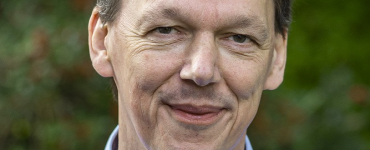The five most important digital policy developments in 2016
Fake news, hate speech, social bots, cyber attacks, and yet again Big Data – these are only a few of the key words that shaped the public awareness of network policy debates in 2016. But what was actually achieved in 2016 in Internet and digital policy? eco – Association of the Internet Industry takes a look back at the five most important digital policy developments and decisions of the last twelve months. Overall, this results in an ambivalent picture made up of restrictive approaches in the area of cyber security and forward-looking initiatives, for example in the areas of digital education and Work 4.0.
“There is great uncertainty in society and politics, which unfortunately all too often manifests itself in massive Internet skepticism based on the conviction that the Internet may, in certain ways, be the greatest uncertainty factor of our time,” says eco Director of Policy and Law Oliver Süme. This, he continues, is also because network policy debates are currently being heavily determined by domestic political considerations. “In politics, this uncertainty leads to a tendency towards more and more drastic ambitions for regulation and surveillance. Here, I appeal for a greater sense of proportion and the careful weighing of risks and opportunities. Digitalization, which is based essentially on the foundation principles of openness and freedom in the Internet, offers enormous opportunities for the economy and for society. A future-proof digital policy should create the framework conditions to implement the opportunities of digitalization entrepreneurially for the good of all. Absolute control is not possible either within or outside of the Internet and should therefore not become the credo of digital policy.” Süme sees positive approaches in the forward-looking concepts introduced in 2016 in the areas of digital education and Work 4.0, as well as in the abolishment of Wi-Fi Third Party Liability.
Retrospective: The five most important digital policy developments in 2016
State Surveillance
With the revision and reintroduction of blanket data retention in Germany, one of the most unpopular network policy initiatives came into effect back in December 2015, but remained a much-disputed topic in 2016. Many legal questions remain unresolved and several lawsuits are in process against the law. Alongside the suit pending in the German Constitutional Court in Karlsruhe, among others, legal action was taken by the company SpaceNet AG in the Administrative Court in Cologne, supported by eco. As well as infringing civil rights, the law also interferes with the constitutionally guaranteed freedom of the company. The catalog of requirements published in October 2016 by the Federal Network Agency also places unrealistically strict stipulations on the measures required for data protection and data security. The implementation of blanket data retention is likely, as a result, to be considerably more expensive and complicated for companies than had been expected. For small and medium-sized operations, the intended regulations could endanger their continued existence. Hardly has the new law come into effect, and already the demands are increasing for a broadening of blanket data retention, among others from the conference of the state interior ministers in December 2016, who also want in future to include messenger services and other Internet services in the law.
A further step towards more state surveillance in Germany is the BND Act concluded in October 2016, which in effect gives the Bundesnachrichtendienst (BND; German Federal Intelligence Agency) the legal basis for mass surveillance, both domestically and abroad. The retrospective control through a new, independent committee completely misses its target, in eco’s eyes, as it concerns neither the extent nor the specific measures for collection.
Cyber Security
In July 2016, the EU Member States agreed upon the first EU-wide regulation for cyber security, with the Directive on the security of network and information systems (NIS Directive). The NIS Directive sets the standards for securing and operating critical infrastructure and digital services like e-commerce platforms, search engines, and cloud providers. It specifies which areas are considered critical and formulates reporting and information duties for the Member States in relation to hacker attacks and other security-relevant incidents. A corresponding implementation act is currently being prepared by the German Federal Ministry of the Interior.
In a parallel initiative, the Federal Cabinet passed a cyber strategy in November 2016, which foresees expanding the national cyber defence center (NCAZ). The National Cyber Security Council, founded in 2011, is also to be more closely involved. The Federal Office for Information Security and the German Army are to establish Mobile Incident Response Teams (MIRTs). A new authority, ZITIS; Zentrale Stelle für Informationstechnik im Sicherheitsbereich (Central Office for Information Technology in Security), is also planned. Its duties will include breaking the encryption of messenger services like WhatsApp or Telegram. eco criticises the liability regime which has been announced in the strategy and the inconsistent formulations in regard to the topic of encryption.
At a European level, and as a reaction to the attacks in Paris in November 2015, an anti-terror directive is being discussed which will enable Member States to block websites under certain conditions. The directive will allow Member States to take measures to remove illegal content which “publicly calls for terrorist crimes,” or – if that is not possible – to block access to such content. eco criticizes the establishment of an infrastructure for blocking and filtering Internet content as being counter-productive in fighting and taking down illegal content. Instead, the European and international cooperation between law enforcement authorities should be supported and the policy of taking criminal content down should be advanced. The directive is currently being negotiated in a trilogue between the European Parliament, Commission and Council.
The German federal government decided on its own anti-terror package in June 2016. It includes requiring identification for the sale of pre-paid cards, more surveillance and closer cooperation between the secret services. eco welcomes that at least one problematic ruling was not included in the new package: The plans to use Internet providers as private helpers in the war on terrorism.
Hate speech
The topic of hate speech led to heated debate in 2016. German Federal Minister of Justice, Heiko Maas, repeatedly announced harder measures aimed at making platform operators like Facebook more responsible for combatting hate speech. According to a representative survey which the polling institute YouGov carried out for eco, over a third of the population has encountered racist hate commentary in the Internet. The current statistics of the eco Complaints Office confirms these figures with enormous growth in the number of complaints related to right-wing radicalism and racism. In 2015, the Complaints Office recorded a 150% increase in justified complaints about racism, in comparison 2014. In absolute numbers, though, complaints about hate postings are nowhere near the number of complaints about, e.g., child sexual abuse material.
An obligation of platform operators to regularly scan their pages for undesired content and to remove such content of their own accord, is something that is regularly called for. The Internet industry has difficulty with such a proposal, as it suggests that social media providers are not prepared to work with law enforcement and need to be forced to do so by law. Providers do work successfully with politics and law enforcement in various contexts and within a number of cooperative initiatives. One example is the Task Force for Combatting Hate Speech Online, which was founded last year with Minister Maas, and of which eco is also a member. On the other hand, companies are not state enforcement bodies. The decison about which content is covered by the fredom of speech and which content is subject to criminal proceeedings needs to be left to the courts. Any other approach would lead to an uncontrollable online censorship infrastructure and would represent a clear danger to the freedom of speech in the Internet.
Wi-Fi Act: Legal certainty for Wi-Fi operators
The Bundestag, the German Federal Parliament, passed the “Wi-Fi Act” in June 2016 after months of heated debate, and put an end to so-called third party liability. eco sees this as the gateway to public hotspots in Germany. According to a representative survey that the polling institute YouGov carried out for eco, half of the population want to use public Wi-Fi more. 48 percent of respondents believe that cities and municipalties are obliged to offer Wi-Fi networks. Almost a quarter think that cities and municipalities should help industry and businesses expand Wi-Fi networks.
Digital education and work
The importance of digital technologies and the Internet has become a central economic factor worldwide. The impact of digitalization on professions, work processes and job requirements are already clear. The German education system must address these changes more than it has been doing to date. The federal government sees the need to do more in the field of digital education and introduced the “Digitalpakt #D” funding program in October 2016 with the aim of improving the digital infrastructure in schools. While the Internet industry sees this as an important initial step, strategies and creating the technical foundations are not enough. Teachers need to be enabled with didactical concepts to help children and young people learn how to use new technologies. This is the task of the federal states, who are responsible for educational policy in Germany: They need to catch up quickly and put forward concrete suggestions for how teaching IT and media competence can be integrated into classes.
The increasing interconnection and digitalization of work process will fundamentally change the world of work in the coming twenty years. The Internet industry believes this will bring more opportunities than threats. The Minister for Labor and Social Affairs, Andrea Nahles has recognized these opportunities, and set two key priorities in her White Book Work 4.0 with the topics of further education and adapting labor law in October 2016.




